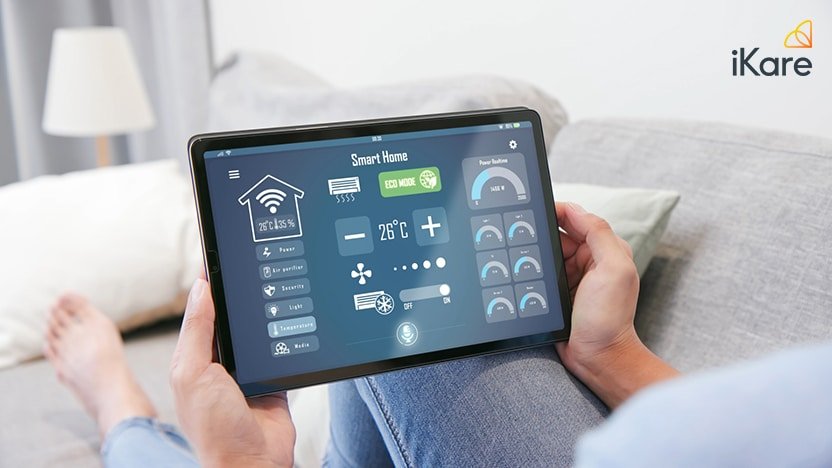
Dementia is a complex and widespread condition that disrupts memory, cognition, and behaviour, posing significant challenges for individuals striving for independent living. Fortunately, advancements in technology have opened doors to innovative solutions that can greatly enhance dementia care and support persons with Dementia. In this article, we learn more about how these innovations can help keep dementia patients more comfortable and safe, supporting both dementia caregivers and those living with dementia today.
Smart home monitoring

One remarkable application of technology in dementia care is the advent of smart home monitoring systems. These sophisticated systems utilise sensors and interconnected devices to enable real-time monitoring and prompt alerts. Through the use of these systems, potential safety risks such as falls or wandering can be swiftly detected and addressed. Moreover, smart home monitoring systems can track daily activities, including medication schedules, eating patterns, and sleep quality, empowering caregivers with remote access to valuable information that ensures their loved ones’ well-being.
Automated lighting
Proper lighting is crucial for individuals with dementia, as it can reduce confusion, agitation, and falls. Automated lighting systems can be programmed to adjust the brightness and colour temperature of lights throughout the day, mimicking natural daylight patterns. This can help regulate sleep patterns and improve mood. Furthermore, motion-activated lights can illuminate pathways and key areas during nighttime, mitigating hazards and instilling a sense of security. By simplifying lighting control, automated systems offer convenience and peace of mind for individuals with dementia and their caregivers alike.
In-home cameras

In-home cameras have become invaluable tools in dementia care, providing an extra layer of support for both dementia patients and their caregivers. Strategically positioned throughout the residence, these cameras allow remote monitoring of daily routines, ensuring medication adherence, and detecting any signs of distress or confusion. They also facilitate remote communication, enabling caregivers to check in and provide reassurance, even when they are physically absent. That said, it is essential to prioritise privacy and obtain consent from individuals with dementia before implementing such in-home camera systems.
Cognitive stimulation and reminiscence therapy apps
Engaging individuals with dementia in cognitive stimulation dementia activities is vital for maintaining cognitive function and overall well-being. Technology offers a wide range of apps specifically designed for cognitive stimulation and reminiscence therapy. These apps provide interactive games, puzzles, and memory exercises that can help improve cognitive abilities, memory recall, and emotional well-being. Caregivers can use these apps as a tool to engage and connect with their loved ones, promoting mental stimulation and enhancing their quality of life.
Learn more: 3 Reasons to Understand the Differences Between ADLs and IADLs
The advent of technology has brought about a transformative shift in our approach to dementia care, introducing innovative solutions that greatly enhance safety, well-being, and independence. With each passing advancement, technology holds boundless potential to further enrich the lives of persons with dementia and their caregivers, propelling us towards a future where dementia care is even more effective, personalised, and compassionate.
Are you seeking professional dementia care in Singapore? Look no further than iKare home care services. As your trusted partner, we offer specialised services that cater to the unique needs of those living with dementia and improving the well-being of your elderly loved ones. Contact us today to discover how our dedicated team can enhance the quality of life for you or your loved one.

